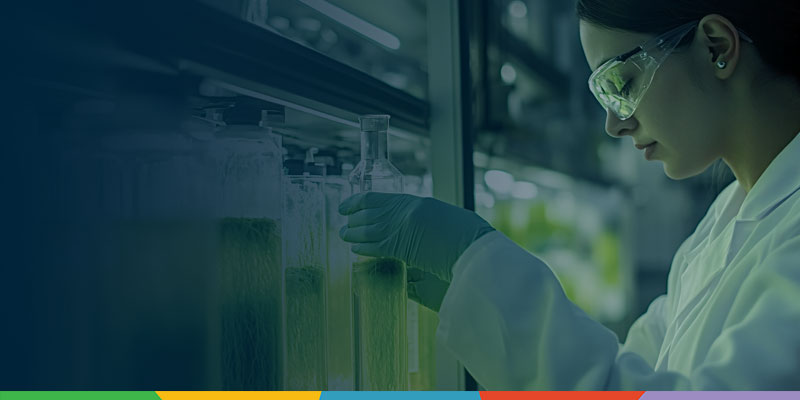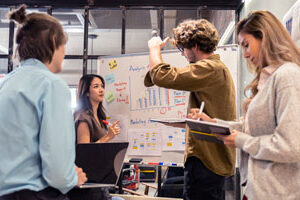Innovation isn’t always about starting from scratch. Sometimes, the smartest solutions come from taking what already works and applying it in new ways. That’s the essence of technology transfer—adapting innovations from one field to solve challenges in another. This approach helps businesses move forward faster, with less risk and opens the door to new opportunities.
Space-grown algae, Earth’s next superfood
Take Astrofood, for example. Their goal? Developing food systems for long-duration space missions using microalgae. These tiny, nutrient-packed organisms could one day feed astronauts in deep space. But what’s just as exciting is how their research is shaping the future of sustainable farming here on Earth.
Packed with nutrients, microalgae like Spirulina are a powerhouse superfoods, lowering cholesterol, strengthening immunity, and fighting inflammation. However, large-scale production demands precision and control to ensure efficiency and quality. That’s where Leap Technologies, a Ghent University spin-off specializing in mechatronics, comes in. By working together, they’re creating advanced photobioreactors—high-tech growing systems that use sensors and automation to optimize algae cultivation. The result? Faster production, lower costs, and a more sustainable food source for both space and Earth.
Feeding two worlds: innovation for Earth and space
This breakthrough isn’t just about growing algae—it’s about opening doors to two major markets.
Sustainable food on Earth: With improved photobioreactor technology, Astrofood can compete in the growing market for alternative proteins. More efficient, high-quality microalgae production means lower costs, making nutritious, eco-friendly food more accessible while contributing to a more sustainable food system.
Future food for space missions: The data gathered from Earth-based farming will help design autonomous food systems for space. Imagine astronauts growing their own fresh food on long missions—reducing reliance on costly resupply missions from Earth.
Funding is key to turning space tech into tangible solutions
Great ideas need the right support to become real solutions. That’s where ESA Spark Funding comes in. This initiative helps turn space technology into practical applications here on Earth. With Verhaert’s support, Astrofood is scaling up its work, proving that space research can have everyday benefits for businesses and consumers alike, revolutionizing food production for feeding people on Earth and in space.
Break boundaries: boost your business with technology transfer
At Verhaert Strategic Innovation, we help businesses apply technology transfer to drive economic growth. With a strong track record of supporting tech transfer initiatives for the European Space Agency (ESA) and other advanced tech sectors like energy fusion, we connect companies with groundbreaking innovations that open new opportunities.
Why technology transfer matters for your business:
- Faster innovation, lower risk – Apply proven technologies to gain a competitive edge.
- New market potential – Unlock business opportunities in unexpected industries.
- Real-world impact – Space technology can tackle big real-world challenges, like food production and sustainability
Want to explore how technology transfer can help your business grow? Let’s talk about how we can make it work for you.




